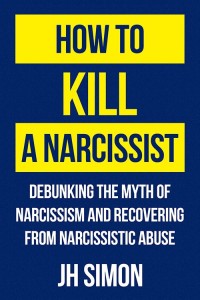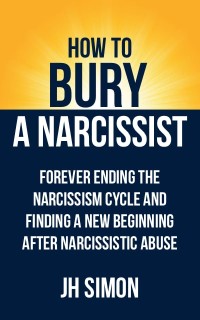Table Of Contents
To get to the heart of what narcissism is, we need to understand the psyche of the human being, and what pushes a person to embrace narcissism as a way of life. Once we establish this, we can then define what a narcissist is, and why narcissistic abuse emerges in a relationship with such a person.
Understanding The Psyche Of The Narcissist
We begin our journey to understanding what narcissism is by looking at the core of the human; their True Self — the place of emotion, instinct, intuition and ancestral power.
The True Self: Who We Truly Are
The True Self is the seed of who we can be. It is an energetic inner star bursting with life, which, if we allow it, shapes our power in the world in unimaginable ways.
The True Self is divine in its mission. Like the sun, its goal is to shine brightly and empower the game of creation. Yet much like the sun, the light of the True Self casts a shadow.
If the True Self is an ever-shining, always-expanding star, the various parts of the psyche can be seen as its solar system. The True Self lies at the centre of this universe, photosynthesising and giving life to everything. Driving it toward manifesting into the world is what Sigmund Freud called the id.
The Id: The Narcissistic Drive For Pleasure
The id is the True Self’s pursuit of pleasure, and avoidance of pain; being driven by urges, desires and needs. Our need to be loved and seen, our desire for sex, our urge to avoid abandonment, all of these drives and more lie at the heart of the id.
The id operates on what Freud called the ‘pleasure principle.’ When you are hungry, you eat. When thirsty, you drink. When you want attention, you demand it. If you like something, you take it. If something is uncomfortable, you avoid it. When someone bothers you, you get angry or you get rid of them. Much like a child, the id is blind in its pursuit of gratification — until it faces the consequences of its actions, of course.
The Ego: Conceptualising Ourselves And The World
Our drives can clash with others, and our environment does not always accommodate us. To get what we want, we sometimes need to resist our urges, and first analyse, predict and understand the world around us — which is a task for the mind. With each experience, we eventually form a map in our brain for how to best navigate our environment.
As we move through the world, we begin to notice differences between ourselves and others. Some people seem confident, others more withdrawn. Some are more powerful, others subservient.
Furthermore, how people treat us shifts based on how we act or do not act. By withholding certain drives, we notice we get better treatment. Other instincts, on the other hand, are welcomed. In time, a concept forms in our mind of how accommodating the world is and who we are in it. This idea of who we are and, above all, who we can be, is our ego.
The ego is a construct the mind uses to negotiate and interact with the world on our behalf. The ego determines how we can behave in the world, not just how we want to. Over time, this concept of ourselves evolves based on the messages we receive from those around us. If we are constantly celebrated and loved, our ego believes us to be worthy of love. If we are neglected, ridiculed or abandoned, we see ourselves as inherently bad, and learn to repress our drives.
The Descent Of The Shadow
Beginning with our parents, there will be a specific set of drives which the world deems unacceptable. In some families, crying is not allowed, nor is protesting or getting angry. Curiosity and excitement can be crushed by an intolerant parent. This creates enormous tension between a True Self that wants to energetically expand, and an ego which deems it ‘wrong.’
As our drives clash with the world, the tension gets too much. To cope, we reject these impulses outright and determine them to be bad. Yet they do not disappear. They remain within us, in an area of the Self which Carl Jung called the shadow.
The shadow contains the urges, desires, traits and needs we were unable to satisfy or express. Because they were rejected by those we loved, and because they were so painful to have, we dissociated and pushed these parts deep inside, and ‘forgot’ them. In the conflict between holding onto love and expressing our authenticity, we sacrificed core parts of ourselves to be accepted. As we grew, we developed amnesia to ensure we never had to face these ‘flawed’ parts, unaware that the past would eventually come back to haunt us.
The False Self: Who We Wish We Could Be
Between a rigid ego and a bloated shadow lies unbearable tension. The healthiest form of release is to satisfy those urges within our environment. Yet when we have determined our drives to be bad, the tension remains permanently in place. We are then forced to vent through addictive behaviours and substances, acting out, overworking, binge-eating or binge-watching, and other forms of escapism.
Another powerful way we release the tension of the shadow is through fantasy. In this way, we can numb our pain and create the illusion of satisfying our drives. We imagine a perfect person who will save us from our prison of agony. We daydream of our circumstances magically changing, or we visualise going to another place where life might improve.
Fantasy can also infect the concept of who we are, i.e. the ego. If we are constantly rejected, neglected and mistreated, the tension of the resulting pain leads us to compensate by imagining ourselves as desirable, special, or even superior. While this can provide relief, it inevitably clashes with reality. Much like a drug, when fantasy runs out, we need a higher dose to get back to where we were.
Also, the stronger the shadow, the more powerful the fantasy must be. In extreme cases, when enough of the True Self is cast out into the shadow, it becomes lost. Fantasy then becomes the only defence, where imagining oneself as superior crystallises in the ego and forms into a grandiose false self; a construct detached from reality.
The false self is an imaginary idea of who one is, which compensates for perceived flaws and inadequacies. Meanwhile, the shadow lurks with all of its rejected parts, ready to burst out unexpectedly. A Cold War emerges between the ‘all-bad’ shadow and ‘all-good’ grandiose false self, ready to turn hot at any moment. The ground then becomes fertile for narcissism to grow. Fuelling this entire process is narcissistic supply.
What Is Narcissistic Supply? The Fuel For Narcissism
Narcissistic supply is the act of being seen, accepted and legitimised by others, which leads to an inflation of joy, pride and power.
Being seen and accepted by others legitimises one’s True Self. It can be a dizzying, intoxicating feeling. When people pay attention to us, react to us, do something for us or give us something, they are feeding us narcissistic supply. In short, narcissistic supply is being legitimised and validated by another person.
For healthy people, narcissistic supply helps them maintain a healthy sense of self-esteem and get their needs met. A certain amount of narcissistic supply is crucial for empowered living. Too much of it corrupts a person’s sense of power, enough of it makes the world go around.
In the case of the narcissist, it is a drug which they use to fuel their false self.
What Is Narcissism?
With this map of the True Self, the id, the ego, the shadow, the false self and narcissistic supply, we can return to the important question: What is narcissism, and what is a narcissist?
Metaphorically speaking, narcissism is like blowing up a balloon. The balloon in this metaphor represents the narcissistic false self, and the helium is narcissistic supply.
When somebody has your attention, they receive helium for their balloon. When somebody can control your reaction, they also get helium for their balloon to stay inflated. Giving somebody your cooperation and resources can also inflate their balloon. Being affirmed for your talents or appearance is helium for your narcissistic balloon.
In the case of a narcissist, this inflated balloon state keeps them cushioned from experiencing their core trauma. To escape their shadow, the narcissist began reinforcing their false self by pursuing attention, reaction, cooperation and affirmation. They found that the more they inflated their balloon, the more power they experienced, and the better they felt.
The narcissist worked constantly toward maintaining this state. Under no circumstance could they risk anybody or anything bursting their balloon. This leads us to the next question:
What Is A Narcissist?
A narcissist is someone who;
A) has cast out the entirety of their True Self into their shadow,
B) replaced it with an imagined false self they deem to be superior in any way necessary,
C) must constantly feed this false self with narcissistic supply,
D) all in the hope of avoiding facing their painful, rejected core.
A narcissist is someone who was not seen, accepted and loved for who they truly were, and therefore compensated by creating a deluded, ‘superior’ version in their mind to compensate. To cope with the tension of having their authentic needs, drives and urges denied, the narcissist resorted to fantasy, and created a false self through which they interacted with the world.
Typically, a person interacts with the world via the ego by creating what Carl Jung called the persona. An example of a persona is a doctor seeing a patient, or a politician fulfilling their duty. The persona comes with a set of behaviours and expectations. It is a practical way to fulfil a role in society. Behind the persona, the person’s authentic nature remains which they show in private.
In the case of the narcissist, their persona is their false self, which has one purpose; to cover up the pain emanating from their shadow. The narcissist avoids their True Self at all costs while maintaining the construct of their superior self in their mind.
In order to maintain their superiority, the narcissist needs somebody to be superior in comparison to. As a result, maintaining a false self requires the narcissist to reinforce and feed it from outside of themselves — even if it means being manipulative, controlling and abusive.
What Is Narcissistic Abuse?
The narcissist is running on a constant treadmill, pouring everything into maintaining their false self as their shadow continually threatens to break through. As long as they are ‘superior’ and getting narcissistic supply, however, all is right with the world. Under no circumstances can this drug ever run out.
The narcissist maintains the superiority of their false self using fantasy, shaming and manipulation — all of which qualify as narcissistic abuse.
1. Fantasy
To be superior at all times, the narcissist needs to defy reality. For that, they need their imagination.
The narcissist lives in a fantasy world, and as a result, everyone who interacts with them is forced to partake in this fantasy. The narcissist will therefore idealise anyone they deem worthy, imagining them to be infinitely loyal, loving, giving, attractive, intelligent and so forth.
The narcissist only has two criteria; a person must either be supremely high value, or must be a perfect source of narcissistic supply. That is, the narcissist will only tolerate the perfect person, or the perfect servant. One bolsters the narcissist’s sense of superiority by association, the other by subjugation.
Idealising another person is narcissistic abuse because it alters their perception of themselves while rejecting who they truly are. The narcissist drugs up their target with an ‘idealisation drug,’ flattering them in any way possible. Nobody is perfect, but the narcissist somehow convinces their target that they are. If the target does not live up to the narcissist’s lofty expectations, the narcissistic abuse will morph into its darker form.
2. Shaming
If you do not live up to the narcissist’s expectations, then they will ridicule you, critique you, question you and attack you until you do. Through shaming you, the narcissist forces you to burn with a feeling of inferiority, and as a result, forces you to redeem yourself.
Humans feel shame when they fall short of a standard. Shame is a necessary emotion intended to keep us aligned with the expectations of our tribe. We evolved with shame because we needed to measure up and fit in. We had to have a set of skills and traits while adhering to the tribe’s moral behaviour. Anytime we fell short, we burnt with shame, which spurred us to improve, hence increasing our chance of survival.
Remember that the narcissist does not dwell in reality, and expects nothing short of perfection. They expect others to conform to the role of the perfect being, or the perfect servant. And because they are human, the target will never live up to the narcissist’s expectations.
The narcissist’s shaming is not about being a better person in service of your tribe, it is about propping up a delusional false self. The narcissist shames their target to force them to fit their ideal vision of perfection, or to force them to keep giving narcissistic supply.
However, the narcissist must also be the superior one. Nobody can be at their level. Therefore, when in a narcissistic relationship, you will be sandwiched between the pressure of being perfect or loyal, and the pressure of being made to feel smaller than the narcissist. This is what lies at the heart of narcissistic abuse.
3. Manipulation
The narcissist defies reality to maintain the illusion of being special and superior. However, as we all know, reality has a stubborn way of forcing its way into our life. The narcissist’s final solution is to warp reality through manipulation.
As a result, the narcissist will lie, deny, deflect, fabricate and gaslight to maintain their delusion. They will bend the truth about what they have achieved, will deny the things they do wrong, and will outright tell you that it was not how you remember. The most crazy-making part of narcissistic abuse is the way it forces you to question your own reality.
This trinity of narcissistic abuse is a horrible experience. First, the narcissist softens you up by lulling you into their fantasy world, then they shame you into measuring up to their perfectionistic standards, all while manipulating and warping your reality to comfort their internal sense of brokenness. The narcissist’s only concern — their highest value and morality — is the avoidance of their painful shadow, and the maintenance of their deluded, grandiose, ‘superior’ false self.
That is what narcissism is. It is a washing machine cycle which never ends, unless one takes steps to educate and protect themselves.















